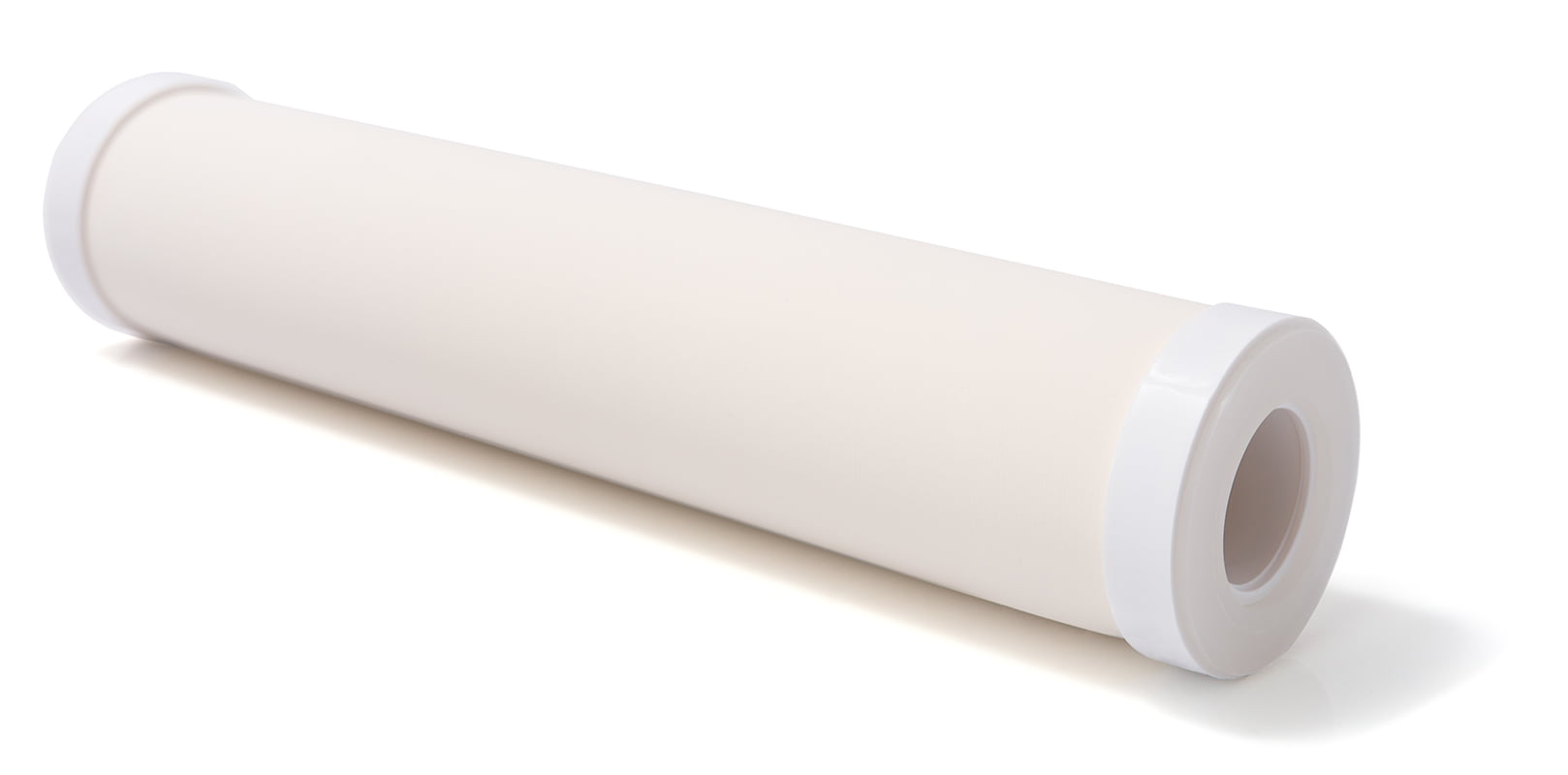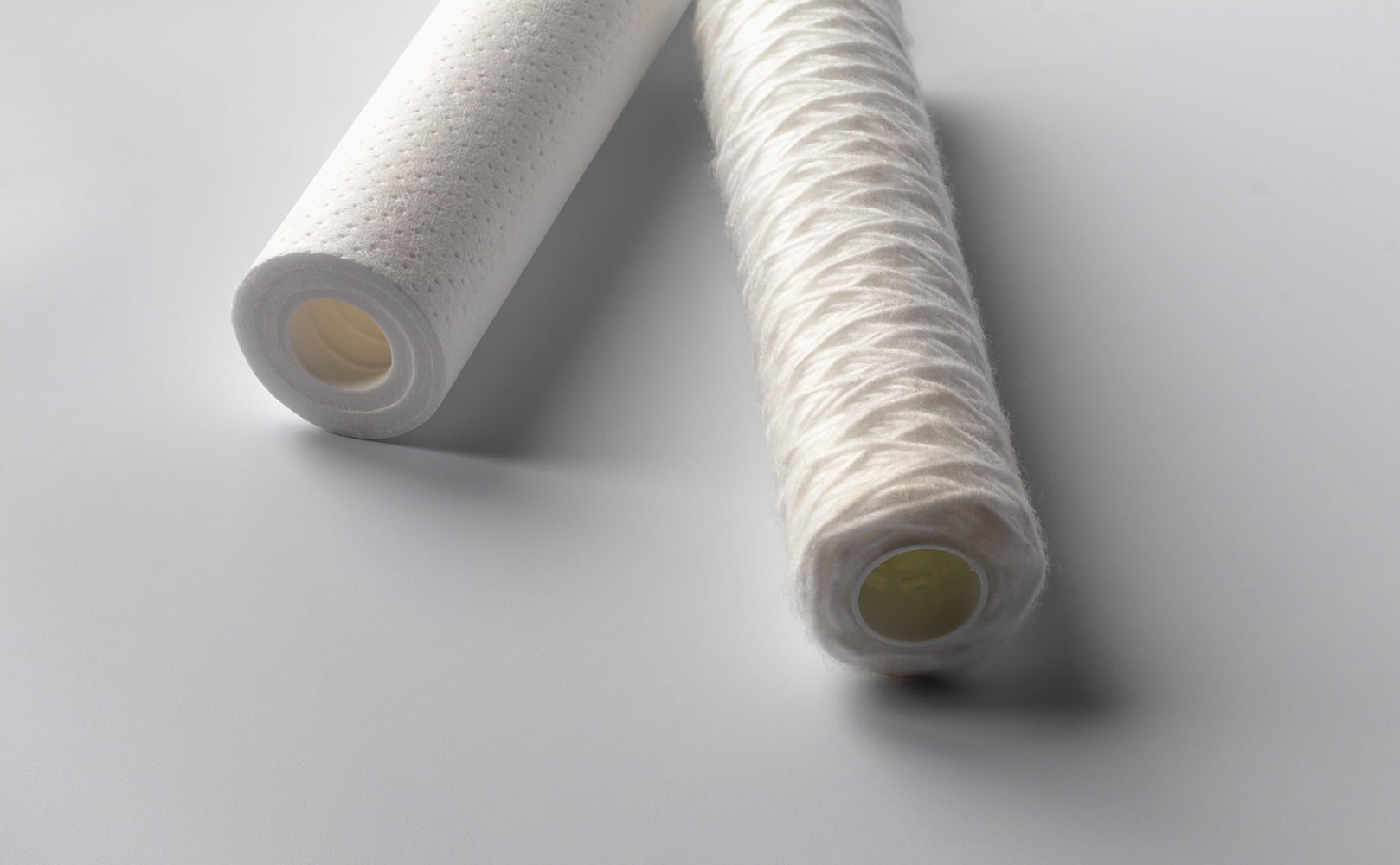Ceramic Filter vs Sediment Filter – What You Need to Know
Written by: Gene Fitzgerald // Last Updated: Jun 16, 2023
This page may contain affiliate links. If you buy a product or service through such a link we earn a commission at no extra cost to you. Learn more.
It can be easy to get confused with the variety of water filtration systems on the market.
Ceramic filters and sediment filters are two more popular choices for domestic use.
This article will give you all the details you need to know regarding their respective properties and help you decide the one most suited for your needs.
Key Takeaways
- Sediment filters are made from a variety of materials – of which ceramic is one. In other words, ceramic filters are one type of sediment filter.
- Ceramic filters are best for outdoor and emergency use, and for filtering drinking water in general. However, they are not suited for whole-house application.
- Regular sediment filters are ideal for whole-house use. They trap sediment and other dirt protecting your entire plumbing system from harm.
What Is a Ceramic Water Filter and How Does It Work?
Ceramic water filters are one type of sediment filter. They use millions of tiny pores on the ceramic surface to stop floating particles, even bacteria, from contaminating your water supply.
They can be installed in the household at a specific point of use or used via a portable filtration device.
Ceramic filters can also be used in conjunction with other compounds to help them target specific contaminants. Here, the ceramic only makes up the outer shell of the filter element. The inside can be filled with various filter media:
Silver-Impregnated Ceramic Filters
Silver ions make them bacteriostatic – preventing bacteria, mold, and algae from growing on the filter.
Ceramic Filters with Activated carbon
Activated carbon is a carbon treated to become highly porous, which enables it to adsorb chemical compounds (such as chlorine and herbicides) from the water supply.
There are two types of carbon that can be used:
- Granular activated carbon is made up of loose carbon granules.
- Carbon blocks use a bonding agent to tie finer activated carbon together in a compact block.
Ceramic Filters with Ion Exchange Filter Media
Ion exchange filter media is great for removing heavy metals and other dissolved ions.
What Is a Sediment Filter and How Does It Work?
Sediment filters act as a physical barrier, preventing contaminants from reaching your taps. As the name suggests, these filters eliminate floating sediment/particles – such as sand and debris.
Sediment filters are made from various materials: Wound string or cord, polypropylene, polyester, cellulose, cotton, and, indeed, ceramic!
Surface and depth filters are the two most common sediment filters.
Surface Filters
Surface filters use a thin sheet to trap particles on the surface. Their accordion-shape is why they are often called ‘pleated filters’. This structure gives them a larger surface area than depth filter, and they also benefit from being washable (and, therefore, reusable).
Depth Filters
Depth filters pass the water through a thick wall of filter media, treating it as it passes through its depth. They often have graded density, whereby larger pores on the outside trap bigger particles, and the tighter pores inside trap the smaller particles.
Ceramic filters are one type of sediment depth filter.
Ceramic Filter vs Sediment Filter – Pros, Cons & Which to Choose
Ceramic Filters
Pros
- Usually have smaller pores than regular sediment filters, enabling them to remove smaller contaminants– even some bacteria and cysts as well as larger particles, like sand, silt, dust, and other dirt.
- A good choice for drinking water filtration, especially when they use a carbon or ion exchange filter media inside.
- Don’t require a power supply, so ideal for outdoor use or emergency preparation.
- Easy to clean and reuse so fewer replacements are needed.
Cons
- Smaller pore size prone clogs easier.
- Smaller pores also restrict water flow and pressure, so not suitable for whole house application.
Sediment Filters
Pros
- Protects the whole home against sediment contamination.
- Prevents clogging and other sorts of damage to your pipes and appliances.
- Cheaper than ceramic filters.
Cons
- Don’t remove chemicals from the water supply
In the end, the best filter for you will be the one suited to the quality of the water supply and your particular needs.
If you have any questions about ceramic vs sediment water filters please don’t hesitate to leave a comment below!
Information provided on BOS is for educational purposes only. The products and services we review may not be right for your individual circumstances.
We adhere to strict editorial guidelines. Rest assured, the opinions expressed have not been provided, reviewed, or otherwise endorsed by our partners – they are unbiased, independent, and the author’s alone. We fact-check all content for accuracy. It is accurate as of the date posted and to the best of our knowledge.



